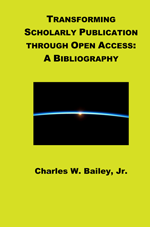While it could be appealed, the U.S. Court of Appeals for the D.C. Circuit's Verizon v. FCC ruling may well be the death knell of net neutrality given that an unfavorable Supreme Court ruling could make the situation worse by eliminating its last legal vestiges.
What now? In my 1996 "Strong Copyright + DRM + Weak Net Neutrality = Digital Dystopia?" paper, I had this to say about the prospects of net neutrality's demise:
There are many unknowns surrounding the issue of Net neutrality, but what is clear is that it is under assault. It is also clear that Internet services are more likely to require more, not less, bandwidth in the future as digital media and other high-bandwidth applications become more commonplace, complex, and interwoven into a larger number of Internet systems.
One would imagine that if a corporation such as Google had to pay for a high-speed digital lane, it would want it to reach as many consumers as possible. So, it may well be that libraries' Google access would be unaffected or possibly improved by a two-tier (or multi-tier) Internet "speed-lane" service model. Would the same be true for library-oriented publishers and vendors? That may depend on their size and relative affluence. If so, the ability of smaller publishers and vendors to offer innovative bandwidth-intensive products and services may be curtailed.
Unless they are affluent, libraries may also find that they are confined to slower Internet speed lanes when they act as information providers. For libraries engaged in digital library, electronic publishing, and institutional repository projects, this may be problematic, especially as they increasingly add more digital media, large-data-set, or other bandwidth-intensive applications.
It's important to keep in mind that Net neutrality impacts are tied to where the choke points are, with the most serious potential impacts being at choke points that affect large numbers of users, such as local ISPs that are part of large corporations, national/international backbone networks, and major Internet information services (e.g.,Yahoo!).
It is also important to realize that the problem may be partitioned to particular network segments. For example, on-campus network users may not experience any speed issues associated with the delivery of bandwidth-intensive information from local library servers because that network segment is under university control. Remote users, however, including affiliated home users, may experience throttled-down performance beyond what would normally be expected due to speed-lane enforcement by backbone providers or local ISPs controlled by large corporations. Likewise, users at two universities connected by a special research network may experience no issues related to accessing the other university's bandwidth-intensive library applications from on-campus computers because the backbone provider is under a contractual obligation to deliver specific network performance levels.
Although the example of speed lanes has been used in this examination of potential Net neutrality impacts on libraries, the problem is more complex than this, because network services, such as peer-to-peer networking protocols, can be completely blocked, digital information can be blocked or filtered, and other types of fine-grained network control can be exerted.
Digital Scholarship | Digital Scholarship Publications Overview | Sitemap


